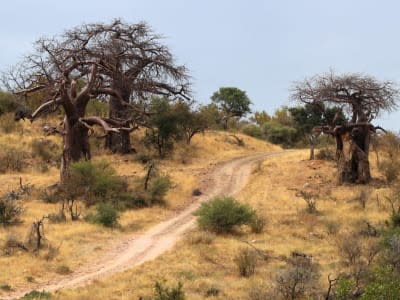|

CLOSING THE GENDER GAPS IN THE MISSION TO ADDRESS CLIMATE CHANGE ISSUES IN ZIMBABWE
23 SEPTEMBER 2024 | CINDERELLA NDLOVU
Article Categories
Often, gender and climate change are discussed in separate rooms, leading to gender-blind policies that fail to recognize the interlinkages between the two. A common misconception is that gender is perceived as a “women” issue, which is not the case. Gender issues include all aspects and concerns related to women’s and men’s lives and situations in society, how they interrelate, their differences in access to and use of resources, their activities, and how they react to changes, interventions, and policies.
Looking at gender and the Zimbabwean economy, 80% of rural women live in communal areas and provide 70% of the labour in Agriculture, directly producing agricultural commodities and thus directly contributing to the economy. Due to the socially constructed roles, more women in Zimbabwe depend on the environment to execute their gendered roles and are more vulnerable to climate change shocks. Additionally, women have limited access to productive resources such as land. They also have very low representation in climate change decision-making processes, rendering them less influential in policies and programs that influence their lives. Various impacts of climate change disproportionately affect women more than men, increasing their burden of work, e.g. water scarcity means women have to spend more hours looking for water.
As part of efforts to facilitate gender mainstreaming, the Zimbabwe Gender Action Plan (GAP) makes reference to training and workshops as crucial instruments in building the capacities of women to partake in decision-making processes. In line with the International Women’s Day theme ‘Inspire inclusion’, Green Hut with support from the Youth Empowerment and Transformation Trust (YETT) conducted a gender-climate workshop to raise awareness on the importance of gender mainstreaming in climate change. The workshop highlighted the objectives, priorities, and activities stipulated in the GAP and another regional and international gender-climate-related policies such as the Convention on Elimination of Discrimination against Women (CEDAW), the Beijing Platform for Action (2000), declaration of gender equality in Africa (2004), SADC protocol on Gender and development, African Union on Gender Policy (2013) and others related policies intending to sensitize the participants on the governance issues.
During a lively panel discussion, Mthokozisi Moyo, the Climate-smart water solutions developer at Green Hut, mentioned the need for inclusivity in the water sector with innovations and technologies that address the needs of women and girls. Ashlee Nhliziyo, from Lunia Centre for Youth, highlighted how climate change is exacerbating the abuse of women and girls, giving case studies of water scarcity where some girls and women are asked for sexual favours in exchange for water. Kholekile Ndlovu, who works with the Unemployed and Vulnerable Foundation Trust, emphasized equity issues, especially for persons with disabilities who are often excluded from participating in climate change yet are also highly vulnerable. Mr Justice Zvaita from the Zimbabwe Climate Change Coalition called for collaborative action among stakeholders to address gender issues.
As part of the organization’s commitment to championing gender mainstreaming, the Green Hut team carefully selected 25 participants to join a cohort of gender-climate champions who will undergo vigorous training and skills development throughout the year. Although numerous policies support gender mainstreaming in climate in Zimbabwe, closing the gender gap is a significant task that calls for collaborative work from the government, civil society, the private sector, and non-governmental organizations.











